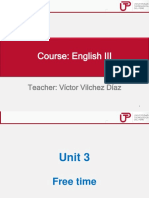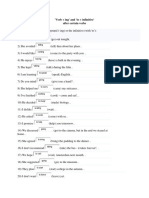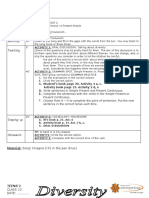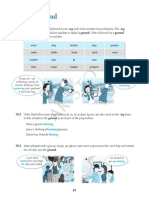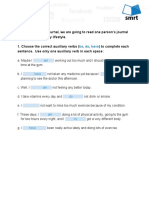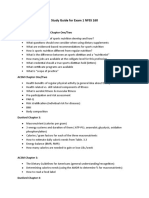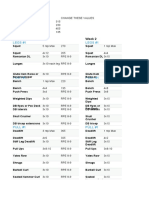0% found this document useful (0 votes)
132 views2 pagesVerb Patterns
The document discusses verb patterns that are followed by the -ing form or the infinitive form. Certain verbs, such as "keep" and "enjoy", are always followed by the -ing form. Other verbs, such as "want" and "decide", are always followed by the infinitive form ("to"). Some verbs can be followed by either the -ing form or infinitive form without a change in meaning. The document provides examples of different verb patterns and exercises to practice using these patterns.
Uploaded by
elenabellisario1407Copyright
© © All Rights Reserved
We take content rights seriously. If you suspect this is your content, claim it here.
Available Formats
Download as PDF, TXT or read online on Scribd
0% found this document useful (0 votes)
132 views2 pagesVerb Patterns
The document discusses verb patterns that are followed by the -ing form or the infinitive form. Certain verbs, such as "keep" and "enjoy", are always followed by the -ing form. Other verbs, such as "want" and "decide", are always followed by the infinitive form ("to"). Some verbs can be followed by either the -ing form or infinitive form without a change in meaning. The document provides examples of different verb patterns and exercises to practice using these patterns.
Uploaded by
elenabellisario1407Copyright
© © All Rights Reserved
We take content rights seriously. If you suspect this is your content, claim it here.
Available Formats
Download as PDF, TXT or read online on Scribd
/ 2
















